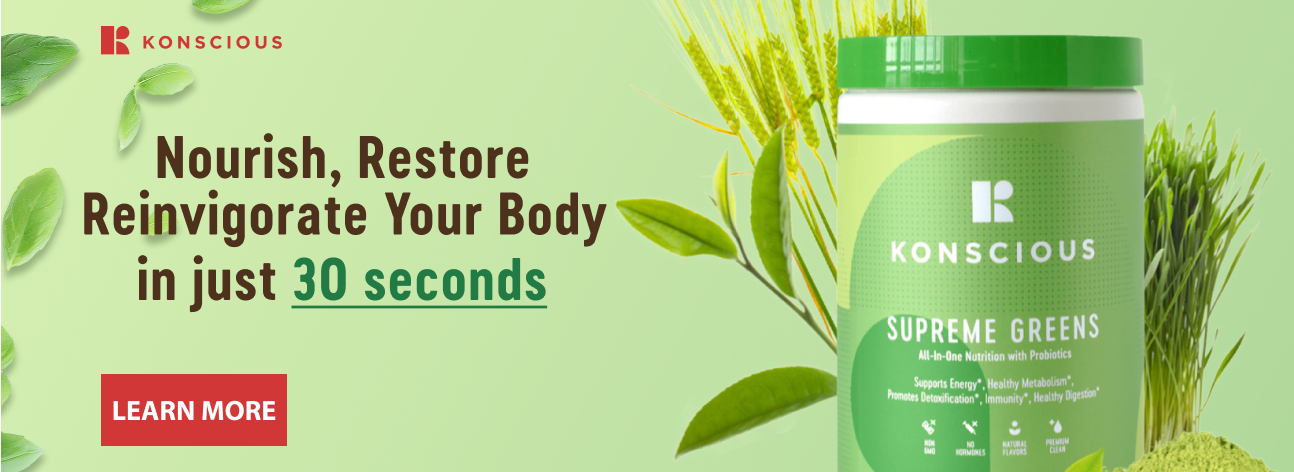12 Negative Effects of Uncontrolled Blood Pressure and Ways to Improve Health Outcomes

A person with uncontrolled hypertension is more likely to suffer from heart attacks, heart failure, kidney disease, strokes, and cognitive decline. However, hypertension has low control rates partly because of a lack of awareness; so, increased knowledge could lead to better health outcomes.
Fortunately, various treatments and lifestyle changes can help regulate high blood pressure to prevent the probability of potentially life-threatening complications one may encounter with chronically elevated levels.
We’ll cover 12 common negative side effects of uncontrolled blood pressure and share six savvy ways to improve blood pressure and bring your levels back into balance.
If you’re a high-risk individual or already suffer from high blood pressure, it may be time to take action and consider making significant dietary, exercise, and other lifestyle changes to prevent the following symptoms and side effects of hypertension:
#1. It raises your risk of heart attack and stroke.
Your arteries are damaged by high blood pressure. Plaque deposits, which harden and narrow your arteries, are more likely to develop as a result. And deposits can cause blood clots, and a blood clot can limit blood flow to your heart or brain, resulting in a heart attack or stroke.
#2. It makes you more likely to develop heart failure.
Hardened or narrowed arteries make your heart work harder to circulate blood. In response to an increased workload, your heart can become larger and stop supplying blood to your organs, potentially resulting in heart failure.
#3. You may experience chest pain.
Angina, or chest pain, occurs when the heart does not receive enough blood.
During activities such as walking uphill, climbing stairs, or exercising, people with high blood pressure can experience a feeling of pressure, squeezing, and pain in their chests.
#4. It can cause kidney damage.
Your kidneys are responsible for removing toxins and regulating many complex body functions. And having high blood pressure can damage the arteries surrounding your kidneys, which can hamper their ability to function optimally, or even lead to kidney failure.
Our kidneys and liver deserve double kudos as our body’s master filters, removing excess fluid and waste from the bloodstream—a process that requires healthy blood vessels.
Unfortunately, high blood pressure can injure the blood vessels within and approaching to the kidneys––and having diabetes along with high blood pressure can amplify the injury.
Kidney problems caused by high blood pressure include:
Kidney scarring (glomerulosclerosis). This form of kidney injury occurs when tiny blood vessels in the kidney are scarred and can no longer properly filter fluid and waste from the blood.
Consequently and notably, glomerulosclerosis can lead to kidney failure.
Kidney failure. High blood pressure is one of the leading causes of kidney failure. Damaged blood vessels weaken the kidneys' ability to effectively filter waste from the blood, allowing toxic levels of fluid and waste to accumulate in the body.
Treatment may consist of dialysis or a kidney transplant.
#5. You are more likely to develop vision problems.
Small blood vessels in the eyes are easily strained or damaged by high blood pressure and optic nerve swelling is also possible.
Bringing your blood pressure down may help you reverse vision problems. However, untreated high blood pressure can result in permanent vision loss.
Furthermore, high blood pressure can injure the tiny, fragile blood vessels that provide blood to the eyes, resulting in:
Retinopathy is damage to the blood vessels in the retina. A damaged blood vessel in the light-sensitive tissue (retina) at the back of the eye may result in bleeding, blurred vision, or complete vision loss.
Plus, suffering from diabetes and high blood pressure increases the probability of developing retinopathy.
Fluid buildup under the retina (choroidopathy). When hypertensive choroidopathy is combined with retinopathy, also referred to as hypertensive chorioretinopathy, fibrinoid necrosis of the choroidal arterioles causes the choriocapillaris to be hypoperfused (best seen by fluorescein angiography), and the retinal pigment to breakdown.
Choroidopathy can result in vision loss and scarring that impairs vision.
Nerve damage (optic neuropathy). Blocked blood flow can injure the optic nerve, causing bleeding within the eye or vision loss.
Also, blood flow to the brain can be limited by narrowed or blocked arteries, causing certain types of dementia (vascular dementia). It has also been recently discovered that strokes can lead to vascular dementia because they interrupt blood flow to the brain.
#6. You could develop sexual dysfunction.
Women with high blood pressure may experience low libido while men may experience erectile dysfunction.
Erectile dysfunction (ED) becomes more common among men as they reach 50. However, men with high blood pressure are even more likely to experience erectile dysfunction.
Having high blood pressure causes limited blood flow to the penis, which results in it being unable to receive oxygen to aid in achieving and maintaining an erection during moments of intimacy.
As we mentioned, high blood pressure may also lead to sexual dysfunction in women. Blood flow to the vagina can be reduced, resulting in decreased sexual desire or arousal, dry vaginal tissue, or difficulty achieving orgasm.
#7. It raises your risk for peripheral artery disease (PAD).
Plaque is more prone to form in the arterial walls of those with high blood pressure. Plaque is a waxy substance consisting of cholesterol and other elements.
The waxy material can build up in your artery walls, narrowing arteries as plaque accumulates.
The narrowing of the arteries in your legs, arms, stomach, or head causes pain, cramping, and fatigue. A person with PAD is also more likely to suffer a heart attack or stroke.
#8. You have a higher risk of hypertensive crisis.
Hypertensive crisis occurs when your blood pressure rises rapidly above 180/120. High blood pressure can damage your organs and cause potentially life-threatening complications.
Hypertensive crises are characterized by the following symptoms:
- You may have blurred vision or other vision problems
- Dizziness
- Lightheadedness
- Severe headaches
- Nosebleed
- Shortness of breath
- Chest discomfort or pain
- Feeling anxious or uneasy
- Blindness
- Chest pain
- Complications in pregnancy (preeclampsia or eclampsia)
- Heart attack
- Memory loss, personality changes, difficulty concentrating, irritability or progressive loss of consciousness
- Significant damage to the body's main artery (aortic dissection)
- Stroke
- Sudden hindrance of the heart's pumping ability, potentially resulting in pulmonary edema, which causes shortness of breath.
- Sudden loss of kidney function
#9. Increased risk of disability.
It is possible for high blood pressure to cause many complications. It can take years for high blood pressure (hypertension) to cause serious damage to the body and before debilitating symptoms appear.
The consequences of uncontrolled high blood pressure can include disability, poor quality of life, or even death––along with a reduced capacity to execute and maintain gainful employment.
#10. Poor quality of life.
Again, high blood pressure (hypertension) can silently wreak havoc in the body for years before symptoms surface. Moreover, uncontrolled high blood pressure over time can cause several devastating medical events like heart attack or stroke, contributing to a poor quality of life, or may even prove fatal.
Furthermore, living with chronic high blood pressure can deteriorate quality of life by causing degenerative cognitive damage that can limit one’s day-to-day activities.
#11. Damage to the brain.
The brain depends on a nourishing blood supply to work properly, and when high blood pressure restricts proper oxygen and blood flow, it may affect the brain in the following ways:
Transient ischemic attack (TIA). Sometimes called a ministroke, a TIA is a brief, temporary disruption of blood supply to the brain. Hardened arteries or blood clots caused by high blood pressure can cause TIA. TIA is often a warning sign of a full-blown stroke.
Stroke. A stroke occurs when part of the brain doesn't get enough oxygen and nutrients, causing brain cells to die.
Blood vessels damaged by high blood pressure can narrow, rupture or leak. High blood pressure can also cause blood clots to form in the arteries leading to the brain, impeding blood flow and potentially causing a stroke.
Dementia. Narrowed or blocked arteries can limit blood flow to the brain, leading to a certain type of dementia known as vascular dementia. Plus, a stroke that interrupts blood flow to the brain can also cause vascular dementia.
Mild cognitive impairment. This condition is a transition stage between the changes in understanding and memory that generally come with aging and the more-serious problems caused by dementia. Studies suggest that high blood pressure can lead to mild cognitive impairment.
#12. Increased risk of aneurysm.
A subarachnoid hemorrhage is most often caused by high blood pressure. In the event of heavy lifting or straining, pressure may rise in the brain and a ruptured aneurysm may result.
Furthermore, It is possible to rupture an aneurysm following a strong emotional reaction, such as being upset or angry.
Blood flowing through a weakened artery can cause a section of its wall to enlarge and form an aneurysm over time. A ruptured aneurysm can cause life-threatening bleeding inside the body.
Despite their ability to form in any artery, aneurysms most commonly develop in the body's largest artery, called the aorta.
There is increasing evidence that hypertension is a major risk factor for the development, enlargement, and rupture of cerebral aneurysms. And high blood pressure could cause hemodynamic stress and inflammation, leading to arterial wall damage and dilation, causing cerebral aneurysm growth and rupture.
Ways to Improve Health Outcomes

Adults with hypertension in the United States are mostly advised to reduce their dietary sodium intake (82%), increase their physical activity (79%), and lose weight (66%).
Exercise can reduce blood pressure in those with hypertension. Especially activities such as walking, running, cycling, swimming, or dancing can lower blood pressure. While a high-intensity interval training program is another heart-healthy option that helps elevate your heart rate.
Besides, sticking to the following healthy habits will have your blood pressure levels in tip-top shape in no time, and your heart will thank you, too.
Consider adding these best practices to your heart-healthy routine to improve health outcomes:
#1. Opt to eat a heart-healthy diet with less sodium.
A heart-healthy diet requires curbing salt (sodium) intake. The American Heart Association advises that healthy adults consume less than 2,300 milligrams (mg) of sodium a day (approximately a teaspoon of salt).

Most adults would be wise to make having no more than 1,500 mg of sodium a day a goal to avoid the symptoms of excess.
#2. Get moving regularly to boost your heart rate throughout the week.
Everyday activities, and just moving more during your day can help to lower blood pressure.

Plus, functional tasks like housework, gardening, or taking an afternoon walk can all help balance blood pressure. Any activity that elevates your heart rate and gets your blood pumping will positively impact your blood pressure.
So, it’s an excellent idea to incorporate more activity into your day as a general rule and standard as you evolve and enhance your approach to heart health.
#3. Focus on achieving and maintaining a healthy weight.
Weight gain typically increases blood pressure, and being overweight may contribute to disrupted breathing during sleep (a.k.a., sleep apnea), which further spikes blood pressure.

However, losing weight is a highly-effective and accessible approach to controlling blood pressure by making small yet significant lifestyle changes to achieve maximum results in supporting heart health.
#4. Drink alcohol in moderation.
Consuming large amounts of alcohol has many adverse effects on the body, including boosting levels of the hormone renin, causing blood vessels to narrow and constrict. Meaning, your arteries become smaller in diameter and less able to support healthy blood and oxygen flow.

Plus, renin lessens the amount of fluid the body eliminates as urine. And this pairing of increased fluid levels in the body and narrower blood vessels increases blood pressure––which is what we want to avoid rather than promote with our daily habits.
#5. Quit smoking to avoid compounding damage to lungs, heart, and overall health.
Deciding to ditch cigarettes reduces your risk of getting, and dying from, heart disease.

In the long run, your choice to quit smoking also reduces your chances of developing atherosclerosis and blood clots as well. Further, if you currently smoke and have heart disease, eliminating the bad habit significantly reduces your risk of cardiac death, heart attacks, and death from other chronic conditions.
#6. Improve sleep hygiene and commit to getting seven to nine hours of sleep a night.
Relying on less than seven to nine hours of sleep daily increases your probability of developing high blood pressure.

Also, poor sleep quality may worsen pre-existing hypertension, leading to poorer health outcomes. As a result, people with hypertension should focus on optimizing sleep duration and quality as a home-based way of bettering blood pressure levels.
Summary
Enjoying the way salt enhances the taste of foods is understandable, but it’s important to monitor daily intake, along with harnessing and possibly revamping certain dietary and lifestyle habits to better suit that which supports optimal blood pressure levels and improved heart health.
And there’s no need to feel overwhelmed as you embark on the vital task of bettering blood pressure levels and supporting coronary wellness. Take small and consistent steps daily in the right direction and your efforts are sure to tilt the scales of fate in your favor with the help of your earnest commitment over time.
Resources
- Lhoste, H. (2016). Study evaluating uncontrolled systolic blood pressure in middle-aged and older patients with high blood pressure. Http://Isrctn.com/. https://doi.org/10.1186/isrctn95532888
- RANDALL, O. (1999). How hypertension begets hypertension. American Journal of Hypertension, 12(4), 169. https://doi.org/10.1016/s0895-7061(99)80608-6
- Soga, Y., & Pandey, D. K. (2010). The link between hypertension and stroke: Summary of observational epidemiological studies. Hypertension and Stroke, 21–39. https://doi.org/10.1007/978-1-60761-010-6_2










